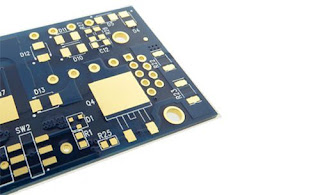Quality control in the design of PCB is extremely important and you must ensure the following 3 aspects in order to maintain the quality.
Manufacturing Analysis: The technological requirements in the manufacturing of PCB must be strictly adhered to by the project leader and technologist. If the technological requirements are relatively simple, they can be directly listed on design drawings or it can be saved in an additional file in a summarized text format. No matter how much simple the technological requirement might be, it must be explained in a reasonable way in an accurate and clear manner. After the checking of the technological requirement is done it must meet the present production craft level along with being cost-effective and convenient so that subsequent checking, assembly and debugging can be implemented easily.
Validity of PCB Design File: The project leader should take the complete responsibility of checking the PCB design file and must implement corresponding procedures for approval so that the validity of the PCB design files can be ensured in a seamless manner.
Normalization & Testability: Standardization has to be implemented in order to ensure normalization checking of dimensions, test points, routing, structural style through-hole via and characters in order to ensure manufacturing feasibility and testability of PCB’s which must adhere to the requirements and standards of the national industry.
PCB Manufacturing Quality Control
Maintaining the right quality control in PCB manufacturing is highly essential and you must and must ensure the following aspects in order to implement proper quality control in PCB manufacturing.
Key Procedures of Manufacturing: The performance and reliability of PCB’s are dependent on the quality of key procedures that are implemented in the manufacturing process and so quality control needs to be strengthened. The important technological steps adopted by the PCB manufacturers have to be closely monitored and checked using etching and mentalization so that there are no gaps, burr or defect in the final manufactured PCB. You also need to implement quality control on multi-layer PCB stacking in order to maintain perfect thickness, positional accuracy, and intensity of the adhesive. Since high frequency, PCB’s and micro-strip boards require gold plating you need to maintain special operating instruction for gold plating so that the thickness and purity of the plating plane can be maintained.
PCB Manufacturers Capability: Sourcing and quality department should work together and assess the manufacturing capability and aptitude of the PCB manufacturers and approve them accordingly in order to ensure that the manufacturers have the required manufacturing capability of the project they are working in the process of PCB manufacturing.
Constant Checking & Confirmation: The design drawings that the PCB manufacturers will apply to have to be checked and confirmed by the PCB designers for several times before manufacturing the PCB’s. PCB manufacturers will keep multiple options of design drawings because no successful PCB design can be created in a single attempt and repeated modification needs to be done as per requirements. Thus, it becomes extremely important to check and confirm the manufacturer’s final design before the actual manufacturing starts so that the final PCB manufactured confirms to the requirement of the last version.
PCB Inspection Quality Control
PCB inspection quality control includes visual inspection or application of professional equipment in order to have complete measurement and monitoring strictly in accordance with the inspection. It is extremely important that the inspection results are stored so that they can be referred to in case of any discrepancy.
Thus, to conclude we can say that PCB Quality Control is highly essential and must be done in a religious manner in order to get the ultimate result and super performance from the PCB’s that are manufactured today.












